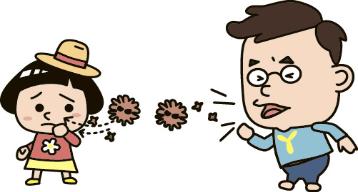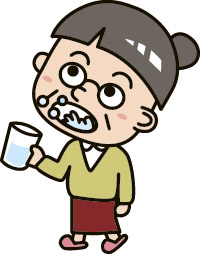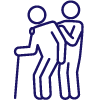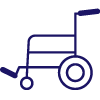- Yokohama-shi Top Page
- Nishi Ward Top Page
- Health, Medical and Welfare
- Health and Medical Care
- Vaccinations Infectious Diseases
- Tuberculosis, AIDS, Other Infectious Diseases
Here's the text.
Tuberculosis, AIDS, Other Infectious Diseases
Last Updated February 22, 2023
Health Promotion Section is taking measures against infectious diseases. Infectious diseases can be life-threatening when they develop and become severe. Proper knowledge and behavior of prevention can prevent infection and onset.
This page introduces various ways to prevent infectious diseases, such as tuberculosis and AIDS, which are being implemented by Health Promotion Section, as well as other infectious diseases.
- Tuberculosis
- AIDS
- Other infectious diseases(influenza, norovirus, Zika virus, Ebola hemorrhagic fever, Middle East Respiratory Syndrome (MERS), Latest Infectious Disease Occurrence)
Tuberculosis is not a disease of the past. It is still the largest infectious disease in Japan.
In recent years, tuberculosis in relatively young people and the elderly has also increased. In particular, those over the age of 65 are more likely to develop tuberculosis due to reduced physical strength. Tuberculosis is a disease that cures if you take medicine properly.
Take a chest x-ray once a year and try for early detection and treatment of tuberculosis.
Symptoms of tuberculosis
The symptoms of tuberculosis are very similar to the symptoms of a cold. If you have symptoms such as coughing, sputum, low-grade fever, sluggishness, or lack of appetite for more than 2 weeks, consult a medical institution as soon as possible.
Tuberculosis is a disease that spreads from person to person due to coughing or sneezing, but if detected and treated early, the possibility of transmission to humans is less likely and treatment is required in a short period of time.

Prevention of tuberculosis
Let's take the following measures to prevent tuberculosis
- A well-balanced diet, adequate sleep, and moderate exercise are important to prevent immunity from deteriorating.
- Have a chest x-ray examination once a year.
- baby/infant should get BCG (Vaccinations) early between 5 months and less than 8 months old.
⇒Click here for posters and pamphlets for tuberculosis
Tuberculosis Prevention Association Tuberculosis Research Institute homepage (outside site)
If you are diagnosed with tuberculosis ...
There is a system in which a part of the cost of treating tuberculosis is paid by public funds. Click here for more information.
About tuberculosis
Click here for more information about tuberculosis.
What is tuberculosis? (Tuberculosis Prevention Association Tuberculosis Research Institute) (outside site)
The incidence of AIDS continues to increase only in Japan among major developed countries. AIDS can reduce immunity when HIV enters the body, causing various infections and malignant tumors.
Most of the causes of infection are sexual contact, and the number of people who live without knowing that they were infected with HIV and suddenly develop AIDS.
If tests show that you are infected with HIV, early treatment can slow or reduce the incidence of AIDS. You can also continue to work. Let's not take AIDS alone, but take appropriate prevention and testing.
We carry out HIV (AIDS) test, syphilis test and consultation reception [free, anonymous] in each ward Health and Welfare Center!
Tests in each district of Health and Welfare Center must be tested for both HIV and syphilis. (We do not test only for HIV or syphilis only.)
For more information, please visit the following page.
■Yokohama AIDS Citizens' Activities Center (outside site)
The Yokohama AIDS Citizens' Activities Center provides free (excluding printing machines) with related information and places for activities to organizations and individuals engaged in AIDS-related social activities in Yokohama City.
Telephone: 045-650-5421
Flu
It is caused by infection with the influenza virus. It spreads from December to March and may become severe.
Symptoms
Fever over 38 ° C, headache, general malaise, muscle pain / joint pain, sore throat, runny nose, cough, etc.
Prevention methods
- Avoid crowds, wear a mask when going out (cough etiquette)
- Hand washing and gargle after going out
- Get enough nutrition and sleep
- Ventilate the room
- In particular, the elderly and children should be vaccinated between October and December every year.
If you want to know more, please click here.
About influenza (seasonal influenza)


Norovirus
Norovirus is prevalent from November to March every year. Norovirus is highly infectious and has symptoms of vomiting, diarrhea, and fever in one to two days when infected. Some people have no symptoms even after infection.
For one week after the symptoms such as diarrhea disappear, the virus continues from the stool for about a month if it is longer.
Click here for points of hand washing, prevention of food poisoning, and treatment of vomiting.
About infectious gastroenteritis (norovirus, etc.)
For social welfare facilities, etc.
In childcare facilities, social welfare facilities, nursing homes for the elderly, etc., there are patients with symptoms such as diarrhea and vomiting, and there are cases where influenza diagnosis and flu-like symptoms occur, and if there is a tendency to spread, please contact Health and Welfare Center immediately.
"Report at the time of infectious disease occurrence in social welfare facilities, etc. (February 22, 2017) Notice of Director-General of the Ministry of Health, Labor and Welfare"
[Report Standards]
(1)When two or more fatalities or serious patients occur due to the same infectious disease or food poisoning or suspected to be due to them within one week
(2)When there are more than 10 patients with infectious diseases or food poisoning in the same room or suspected persons or more than half of all users.
(3)(1)Even if it does not fall under (2), it is suspected that infectious diseases, etc. that exceed normal outbreak trends, especially when the facility manager deems necessary to report.
We may ask you to submit an epidemiological questionnaire. In that case, please download it from the following and fill it out.
Please utilize infectious disease prevention enlightenment material, enlightenment handbill
Training materials for infectious disease prevention measures and educational leaflets
Zika virus infection (Zika fever)
About mosquito-borne infectious diseases
Ebola hemorrhagic fever
Middle East Respiratory Syndrome (MERS)
About Middle East Respiratory Syndrome (MERS)
The latest infectious disease outbreak situation (Yokohama city)
Inquiries to this page
Nishi Ward Health and Welfare Division Health Promotion Section
Telephone: 045-320-8439
Telephone: 045-320-8439
Fax: 045-324-3703
Email address: ni-hukuho@city.yokohama.jp
Page ID: 533-544-539













